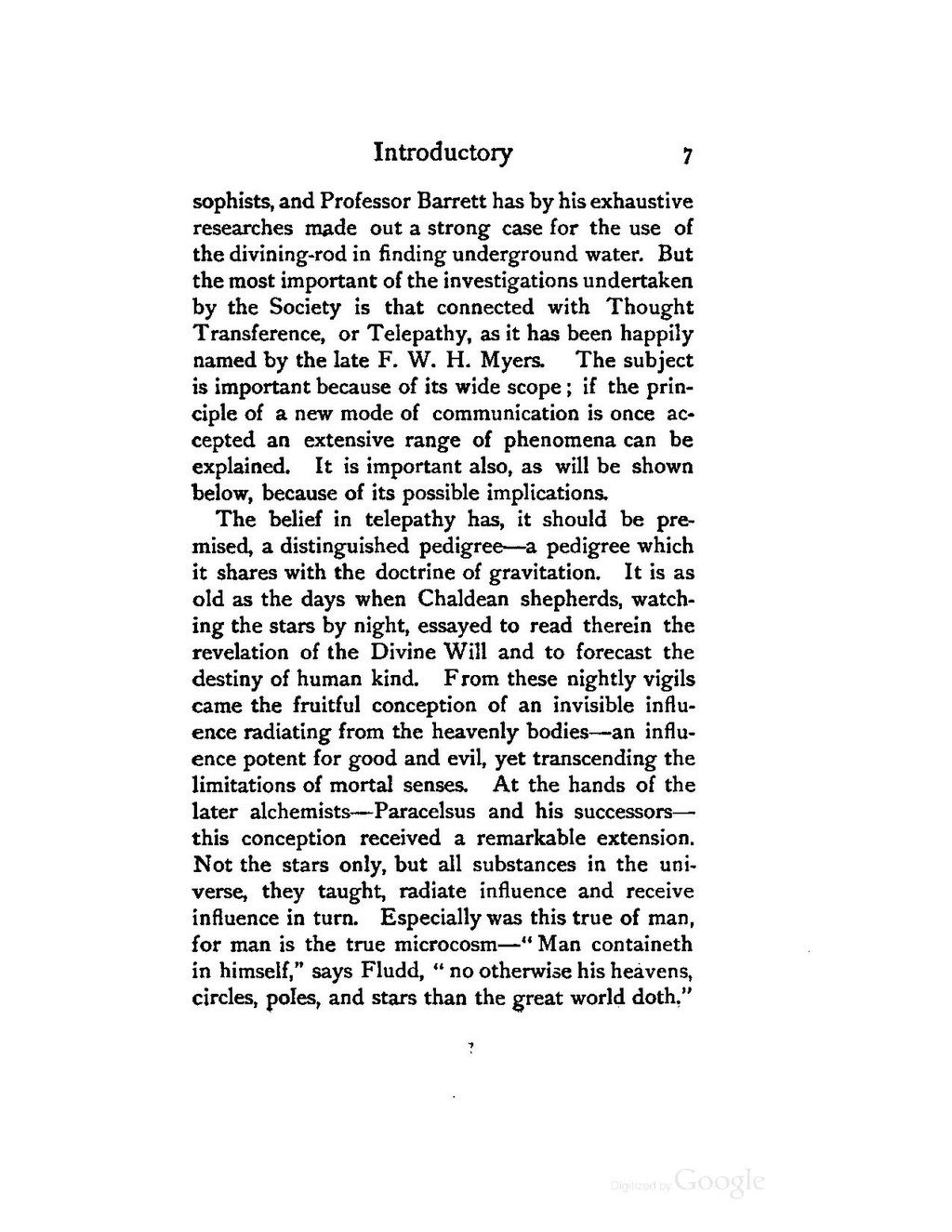sophists, and Professor Barrett has by his exhaustive researches made out a strong case for the use of the divining-rod in finding underground water. But the most important of the investigations undertaken by the Society is that connected with Thought Transference, or Telepathy, as it has been happily named by the late F. W. H. Myers. The subject is important because of its wide scope; if the principle of a new mode of communication is once accepted an extensive range of phenomena can be explained. It is important also, as will be shown below, because of its possible implications.
The belief in telepathy has, it should be premised, a distinguished pedigree—a pedigree which it shares with the doctrine of gravitation. It is as old as the days when Chaldean shepherds, watching the stars by night, essayed to read therein the revelation of the Divine Will and to forecast the destiny of human kind. From these nightly vigils came the fruitful conception of an invisible influence radiating from the heavenly bodies—an influence potent for good and evil, yet transcending the limitations of mortal senses. At the hands of the later alchemists—Paracelsus and his successors—this conception received a remarkable extension. Not the stars only, but all substances in the universe, they taught, radiate influence and receive influence in turn. Especially was this true of man, for man is the true microcosm—"Man containeth in himself," says Fludd, "no otherwise his heavens, circles, poles, and stars than the great world doth."
